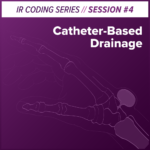Artificial intelligence (AI) is revolutionizing the healthcare industry, bringing significant advancements in clinical applications, patient care, and administrative efficiency.
However, while much of the discussion surrounding AI in healthcare focuses on its clinical potential, compliance professionals are experiencing a different but equally critical transformation. As AI becomes more embedded in healthcare management, compliance officers must address new challenges and opportunities to ensure regulatory adherence, data security, and ethical AI use.
Regulatory bodies increasingly emphasize the need for explainability in AI systems. Compliance teams must develop transparent processes that allow AI decisions to withstand regulatory scrutiny.
This requires establishing clear audit trails that document how AI systems reach their conclusions, ensuring that organizations can provide justifications for automated decisions when required.
For instance, an AI system analyzing medical claims may flag inconsistencies that indicate potential fraud. However, without a clear understanding of the AI’s reasoning, compliance officers may struggle to validate these findings. By implementing explainable AI models, organizations can trace AI-driven determinations back to specific data points, enhancing trust and regulatory adherence.
Accountability structures must also be in place to assign responsibility for AI-generated decisions. Compliance teams should work with AI developers to define oversight mechanisms that ensure human intervention where necessary.
Establishing clear governance hierarchies ensures that AI remains a tool for compliance enhancement, rather than a source of potential liability.
AI’s Role in Enhancing Compliance Monitoring and Risk Mitigation
AI’s ability to process and analyze large datasets presents a significant opportunity for compliance teams to enhance monitoring and risk mitigation efforts. AI-driven analytics can identify patterns that indicate potential compliance violations, enabling organizations to address issues proactively.
For example, AI can analyze billing patterns across a medical practice to detect irregularities. Instead of reviewing individual claims in isolation, AI can cross-reference data points such as diagnosis codes, treatment frequencies, and geographical comparisons. This holistic approach allows compliance teams to identify potential billing errors or fraud before they escalate into significant issues.
Additionally, AI’s predictive capabilities can help organizations anticipate compliance risks before they materialize. By analyzing historical data, AI can identify trends that indicate emerging regulatory concerns, allowing compliance teams to implement preventive measures.
This shift from reactive to proactive compliance management enhances overall regulatory adherence and reduces the risk of costly violations.
The Future of AI in Healthcare Compliance
As AI continues to shape the healthcare landscape, compliance professionals must embrace its potential while remaining vigilant about its challenges. AI presents a unique opportunity to enhance compliance monitoring, streamline administrative processes, and improve data security. However, its implementation must be guided by robust governance frameworks, transparent decision-making processes, and comprehensive workforce training initiatives.
The future of healthcare compliance will be defined by a delicate balance between innovation and regulation. By proactively addressing AI’s compliance implications, healthcare organizations can harness its benefits while safeguarding patient privacy, maintaining regulatory integrity, and ensuring ethical AI use.
AI is not just transforming clinical care – it is redefining the very foundation of healthcare administration. Compliance professionals play a crucial role in ensuring that this transformation serves the best interests of patients, healthcare providers, and regulatory bodies alike.
As AI adoption accelerates, a forward-thinking approach to compliance will be essential in shaping a healthcare system that is both technologically advanced and ethically sound.
EDITOR’S NOTE:
The opinions expressed in this article are solely those of the author and do not necessarily represent the views or opinions of MedLearn Media. We provide a platform for diverse perspectives, but the content and opinions expressed herein are the author’s own. MedLearn Media does not endorse or guarantee the accuracy of the information presented. Readers are encouraged to critically evaluate the content and conduct their own research. Any actions taken based on this article are at the reader’s own discretion.













